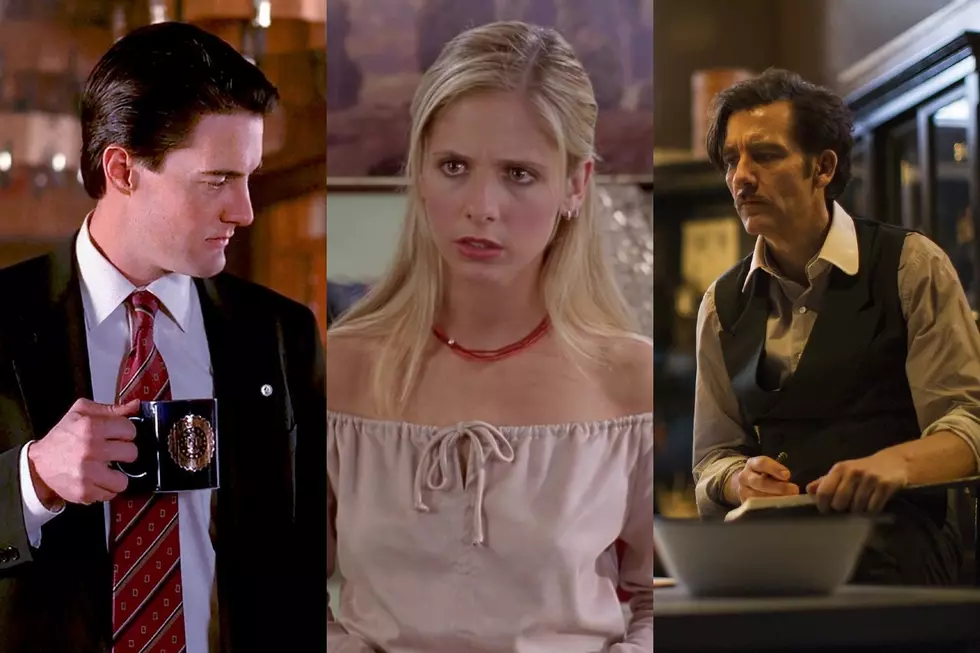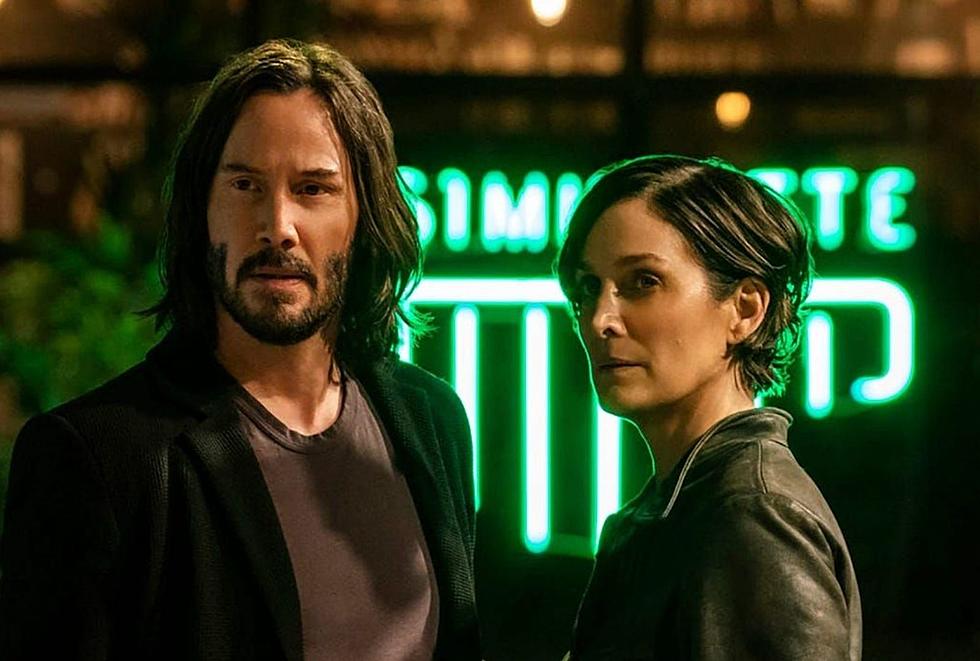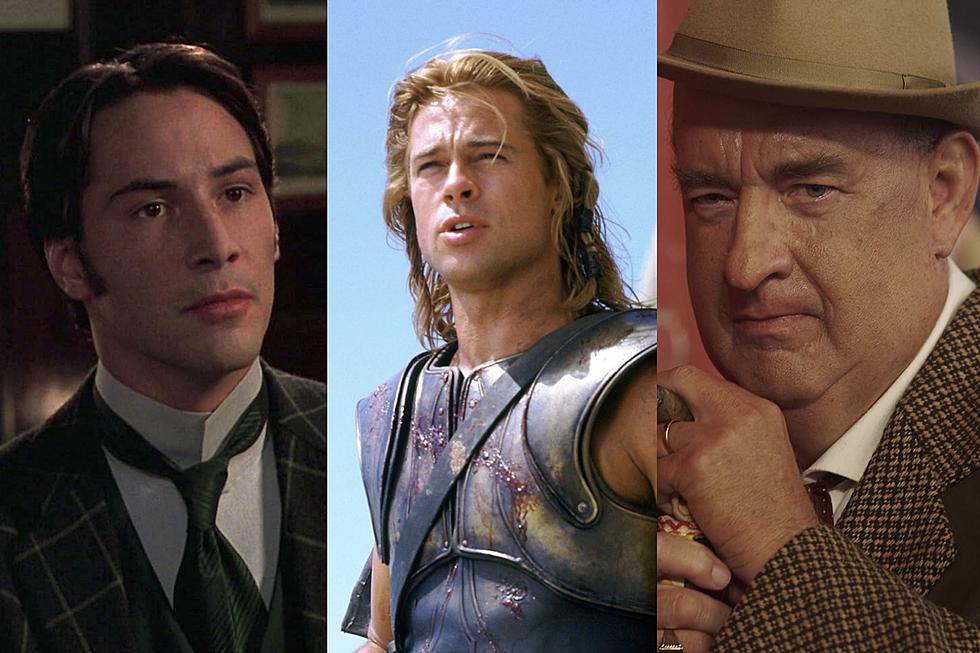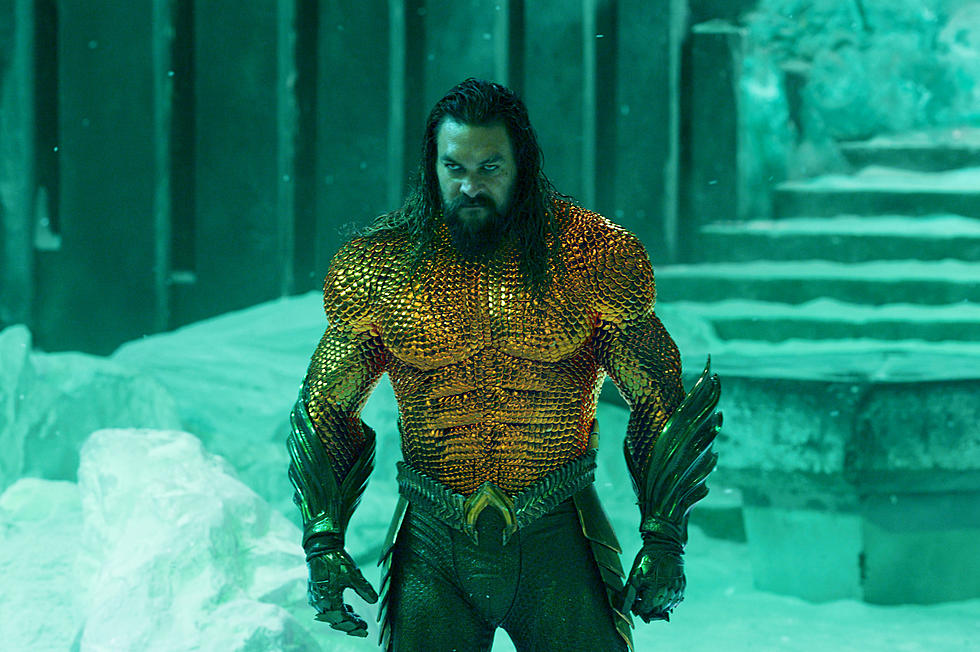
‘Cloud Atlas’ Review
Trying to review 'Cloud Atlas' an hour after you've seen it is like trying to recite the Bible from memory after you've read it for the first time. I'll definitely be able to cover the big points, but the fine details are going to get lost: there's no way to take it all in on just one viewing.
Whatever its missteps, directors Tom Tykwer, and Andy and Lana Wachowski have crafted a staggeringly ambitious piece of cinema -- or really six pieces of cinema, strung together and interwoven and speaking to one another in all kinds of ways. Sitting here a short while after I saw it for the first time, I can't really say I fully understand a lot of the "why" -- why this character is so important to the fate of humanity, or why that character needs to activate that particular device -- but the "what" is always so compelling, I was happy to be puzzled. I still am.
This must be the shortest three-hour movie ever made. It flies by in a rush of dazzling imagery and intoxicatingly smooth transitions. There are six stories set in six different time periods, connected by specific plot points, ideas and actors who pop up over and over in different roles. So there are six Tom Hankses, six Halle Berrys, six Hugo Weavings and so on, offering the cast the chance to exhibit in one movie the sort of range they might otherwise need an entire career to reveal. Jim Broadbent flips between sinister music stealer to hilarious scene stealer; Hanks between a greedy physician and a selfless peasant. These metamorphoses are accomplished through the heavy use of prosthetic makeup, some of it impressively convincing and some downright bizarre, particularly in a futuristic sequence set in "Neo Seoul," where several of the white actors are transformed into "Asians," but look more like Romulans from 'Star Trek.'
Each story has a different protagonist -- although Weaving or Hugh Grant tend to play the villain every time (every period throughout history, it seems, had it own version of Agent Smith to contend with). For the sake of clarity (and my own sanity) let's very briefly list the stories in chronological order -- bearing in mind that the film itself cuts freely back and forth between them with no apparent structure or pattern:
- Pacific Ocean, 1800s. An American (Jim Sturgess) sailing home from the Pacific is poisoned by his doctor (Tom Hanks) and awakened to the perniciousness of slavery by a helpful African sailor (David Gyasi).
- Belgium, 1930s. A young composer (Ben Whishaw) finds his work is in danger of being stolen by his older, more accomplished collaborator (Jim Broadbent).
- San Francisco, 1970s. An investigative journalist (Halle Berry) stumbles on a conspiracy to discredit a nuclear power plant after a tip from the young composer's former lover (James D'Arcy).
- London, 2012. A book publisher (Broadbent) on the run from gangsters gets unwillingly committed to a nursing home and struggles to escape from the clutches of its evil Nurse Noakes (Weaving).
- Neo Seoul, 2144. A "fabricant" (Doona Bae) -- basically, a cloned slave -- working in a futuristic totalitarian society rebels against her programing and sparks a revolution.
- Undetermined, 106 Years "After The Fall." A simple villager from a post-apocalyptic society (Hanks) agrees to guide a woman from a technologically advanced race (Berry) to a mountain of some importance.
Each story exists in its own genre -- from detective thriller to speculative sci-fi to prison escape comedy -- but themes and ideas recur over and over. Those who are slaves -- literally or figuratively -- fight for their freedom. Men and women who possess the power to do great good fight their inner demons -- also literally or figuratively -- to decide the correct course of action. And, perhaps most importantly, great artists and thinkers find their work in danger of being buried, co-opted or flat-out stolen.
'Cloud Atlas'' title comes from the sextet written by the protagonist of story #2, who fears that his great accomplishment will be pilfered by a domineering and totally unworthy Salieri (his fears are not unfounded, either). In story #3, Berry's character hunts down the leads left to her by the composer's lover -- which eventually brings her to a record store where she listens to his "Cloud Atlas Sextext." She swears she's heard it before, but according to the shop owner, his copy is one of a small handful on the entire continent, a masterpiece nearly lost forever to the trash heap.
Tykwer and the Wachowskis seem to share the composer's terror. 'Cloud Atlas' was not an easy film to produce or finance. As their budget repeatedly collapsed and studios emphatically refused to distribute it, they must have fought a whole series of Jim Broadbents who wanted to sap their creativity and convince them their ideas were no good. In its most powerful moments, 'Cloud Atlas,' with its mad aspirations to capture the totality of human existence and philosophy in one titanic movie, is a love letter to its own creation. What is being said is ultimately less important than the act of saying it to the widest possible audience, and not letting anyone -- naysayers, skeptics and even critics -- stop you.
If it sounds like the filmmakers bit off more than they could chew, they did -- and the casualties are some of the finer points of plot and character motivation. It is never difficult to follow the action -- everything adds up to a series of schematic conflicts between obvious good guys and more obvious bad guys -- but it can be tough at times to ascertain the reasons for that action (thick accents in the two future chapters don't help matters). While the movie seems intent on expanding the audience's minds to humanity's (and cinema's) untapped possibilities, its non-stop barrage of action and imagery offers very few opportunities to consider the ramifications of those possibilities. Two viewings almost feel like a necessity, both to catch the finer points of the narratives, and to soak in the various connections between them.
But if some of the stories don't quite congeal, and the ultimate ending feels a bit anticlimactic, let it be said that a second viewing sounds like an absolute pleasure rather than a chore. Complaining that the denouement doesn't live up to the enormity of 'Cloud Atlas'' scope is sort of like dismissing a gymnast's entire balance beam routine because she didn't stick a particularly tricky dismount. In those situations in gymnastics, judges give extra points for degree of difficulty. As far as I'm concerned, film should work the same way.
'Cloud Atlas' hits theaters on October 26.
Matt Singer is a Webby award winning writer and podcaster. He currently runs the Criticwire blog on Indiewire and co-hosts the Filmspotting: Streaming Video Unit podcast. His criticism has appeared in the pages of The Village Voice and Time Out New York and on ‘Ebert Presents at the Movies.’ He lives in Brooklyn with his wife, dog, and a prop sword from the movie ‘Gymkata.’
More From ScreenCrush









